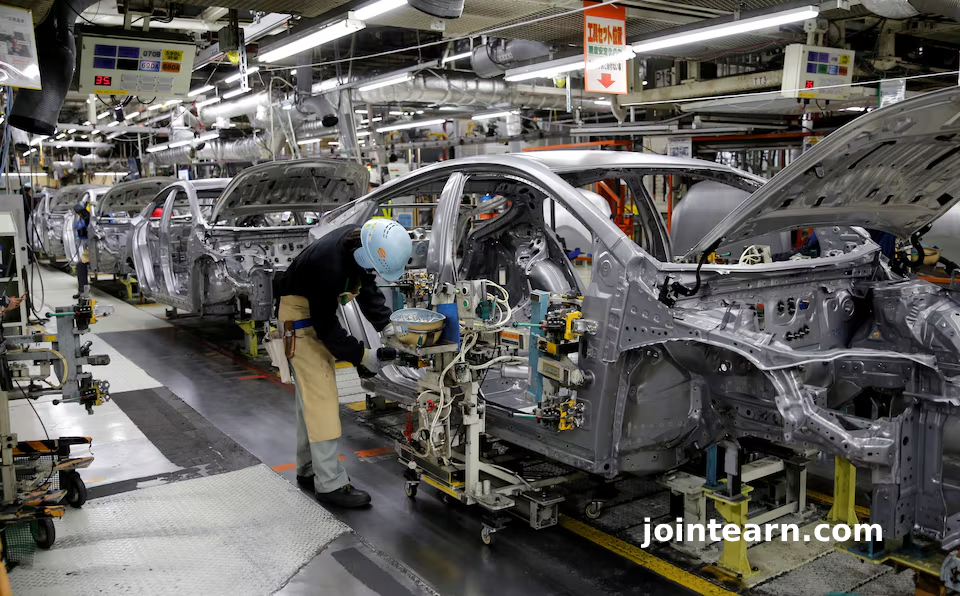
Japan’s largest automobile industry union, the Confederation of Japan Automobile Workers’ Unions (JAW), has reaffirmed its commitment to maintaining strong wage demands in upcoming labor negotiations, even as the sector faces significant financial challenges due to U.S. tariffs. This stance, articulated by JAW President Akihiro Kaneko, highlights the union’s determination to sustain wage growth amid economic headwinds affecting the Japanese auto industry.
Wage Growth Momentum Remains Unshaken
In a recent interview with Reuters, Kaneko emphasized that despite ongoing inflation and the drag from international trade pressures, JAW will not weaken its negotiating position. “With inflation persisting and real wages still lagging, there’s simply no option to enter next year’s wage talks with a weaker stance than last year,” he said.
Kaneko acknowledged the auto sector’s difficulties, noting that Japanese automakers are bracing for a 30% decline in profits this year due to tariffs imposed by the United States. However, he stressed that wage increases are critical to sustaining consumer spending, which in turn fuels economic growth. “Higher wages drive consumption, consumption fuels growth, and this cycle is essential to keep our economy vibrant,” Kaneko added.
Recent Wage Gains and Union Influence
In the 2025 labor negotiations, JAW successfully negotiated an average monthly wage increase of 4.94% for its members. Representing 12 unions and over 784,000 workers, JAW covers employees at major automakers such as Toyota Motor Corporation and Honda Motor Company, as well as numerous auto parts suppliers. The union’s bargaining power often sets the tone for wage negotiations across Japan, as the automotive industry employs more than 5 million people nationwide.
Implications for the Bank of Japan and Monetary Policy
The outcome of next year’s wage talks has become a focal point for the Bank of Japan (BOJ) as it considers potential interest rate adjustments. Governor Kazuo Ueda stated that the central bank is monitoring corporate wage policies closely, particularly in the auto sector, which has been hit hard by U.S. trade measures. The BOJ seeks additional data to determine whether wage growth will continue despite these challenges, which could influence the timing of the next interest rate hike.
Strategies to Support Wage Growth
Kaneko also indicated that JAW plans to work with management to enhance profitability, thereby ensuring funds are available for wage increases. Proposed measures include encouraging fair pricing practices to enable suppliers to raise wages sustainably. The collaboration aims to balance worker demands with the financial realities facing automakers under the new trade framework.
Trade Agreement Impact
In September, Washington and Tokyo formalized a trade agreement, which reduced tariffs on Japanese imports to a baseline of 15%, down from earlier proposed rates of 27.5% on autos and 25% on most other goods. While this alleviates some pressure, the auto industry continues to face significant challenges from past tariffs, global supply chain disruptions, and fluctuating demand.
Conclusion
Japan’s automotive unions, led by JAW, are signaling a firm stance on wage negotiations, emphasizing the importance of real wage growth to maintain economic momentum. As the country navigates inflationary pressures and trade-related headwinds, the coming labor talks will not only impact the auto sector but could also influence broader economic policies and consumer spending trends across Japan.


Leave a Reply